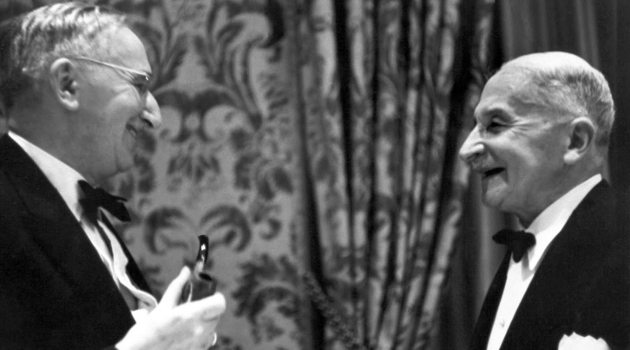I went to George Mason University for my Ph.D. specifically because of my interest in both “public choice” and “Austrian theory.”
The former deals with analyzing how politicians, bureaucrats, and voters really behave (as opposed to the naive view you may have learned in a civics class), and the latter refers to a particular type of economic analysis that was developed by scholars (mostly based in Vienna) in the late 1800s and early 1900s.
and the latter refers to a particular type of economic analysis that was developed by scholars (mostly based in Vienna) in the late 1800s and early 1900s.
I occasionally put in a plug for Austrian economics, largely because it has a lot to offer when analyzing business cycles, monetary policy, and entrepreneurship (it is generally similar to other market-friendly schools of thought when looking at other issues, such as public finance, trade, and regulation).
But I’ve never done a column explaining Austrian economics. It’s time to rectify that oversight thanks to a 7-part video series narrated by Professor Steve Horwitz.
Part I discusses the marginal revolution (which supplanted the labor theory of value) and notes that Austrians emphasize subjective value.
Analyzing behavior “on the margin” is important for good economics. It’s why, for instance, that we should focus primarily on marginal tax rates rather than average tax rates.
In Part II, Steve discusses how Ludwig von Mises showed back in 1920 that genuine socialism (rather than Nordic-style redistributionism, which didn’t even exist back then) was not feasible in part because governments have no rational way of setting prices and sensibly allocating resources.
If you want an amusing version of what you just watched, check out this video I shared last year.
In Part III, Steve elaborates on the role of knowledge, citing the important work of Friedrich Hayek on the importance of decentralization, prices, and private property.
One of the implications of this work is that central planning is not feasible.
In Part IV, Steve discusses Israel Kirzner’s work on entrepreneurship, which Austrian scholars point out is the source of innovation.
Part V is Steve’s explanation of how money evolved via spontaneous order.
The above video focuses on the origin of metallic money. It’s also worth noting that paper money was developed by the private sector.
In Part VI, Steve discusses the Austrian theory of business cycles, which focuses on how monetary policy can cause distortions that lead to booms and busts. And a key insight is that the false booms make busts inevitable.
Another insight from the above video is that the best response to a downturn is to do nothing, even though that’s not a popular answer for politicians – particularly compared to the Keynesian prescription of more spending.
In the final video, Part VII, Steve explains the Austrian view of marginal utility.
Here’s a bonus video featuring Tyler Cowen’s analysis of the Austrian theory of business cycles (the topic Steve covered in Part VI)
P.S. I shared a longer video on the Austrian theory of the business cycle back in 2013.
P.P.S. And no discussion of Austrian economics is complete without sharing Part I and Part II of the Hayek vs-Keynes rap contest.

